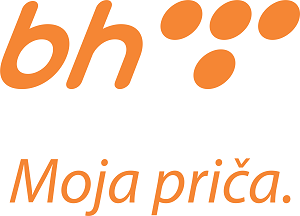IB MIDDLE YEARS PROGRAMME
International Baccalaureate Middle Years Programme (IBMYP or simply MYP) is one of four educational programmes offered by the International Baccalaureate Organization (IBO). IBO is a foundation that was established in 1968. It focuses on the education of students aged 3 to 19. The educational programmes of this organization are currently implemented by more than 4000 schools in more than 140 countries of the world, and they are attended by approximately 1,100,000 students. The headquarters of the IBO are located in Geneva (Switzerland), The Hague (Holland) and Cardiff (Wales, United Kingdom). The IBO regional offices support schools in the four IB regions thus covering the whole world: 1. Africa, Europe, Middle East; 2. Asia-Pacific; 3. Latin America; 4. North America and the Caribbean.
The four programmes offered by the IBO are:
- The IB Primary Years Programme for pupils aged 3 to 12, introduced in 1997.
- The IB Middle Years Programmefor pupils aged 11 to 16, introduced in 1992.
- The IB Diploma Programme for students aged 16 to 19, an internationally recognized pre-university course of studies for upper secondary school students introduced in 1960s.
- The IB Career-related Programme for students aged 16 to 19, introduced in 2006.
MAIN AIMS AND PRINCIPLES OF THE IBMYP
The IB Middle Years Programme aims to develop in its students:
- The disposition and capacity to be lifelong learners.
- The ability to adapt to a rapidly changing reality.
- The capacity and self-confidence to act individually and collaboratively.
- The ability to engage in effective communication across frontiers.
- Respect for others and an appreciation of similarities and differences.
From its beginning, the MYP has been guided by three fundamental concepts that underpin its development, both internationally and in individual schools:
- Holistic learning - It is based on studying different subject disciplines and emphasizing the links between those disciplines. The students discover how learning is related to real-life situations and issues.
- Intercultural awareness - Students need to understand and appreciate the ideas and cultures of other people in order to show their readiness to cooperate.
- Communication - It has a crucial significance in realizing the previous two principles. Mastery of mother tongue helps students to clearly express their ideas, attitudes and feelings, while studying foreign languages increases that ability and teaches them to appreciate other cultures and opinions.
Dear parents and students' legal guardians, please note that the MYP General Regulations can be found in the attachment below. In order to read the document, you need to have a PDF reader installed on your computer.
IB LEARNER PROFILE
The aim of all IB programmes is to develop internationally minded people who, recognizing their common humanity and shared guardianship of the planet, help to create a better and more peaceful world. IB learners strive to be:
- InquirersThey develop their natural curiosity. They acquire the skills necessary to conduct inquiry and research and show independence in learning. They actively enjoy learning and this love of learning will be sustained throughout their lives.
- KnowledgeableThey explore concepts, ideas and issues that have local and global significance. In so doing, they acquire in-depth knowledge and develop understanding across a broad and balanced range of disciplines.
- ThinkersThey exercise initiative in applying thinking skills critically and creatively to recognize and approach complex problems, and make reasoned, ethical decisions.
- CommunicatorsThey understand and express ideas and information confidently and creatively in more than one language and in a variety of modes of communication. They work effectively and willingly in collaboration with others.
- Principled They act with integrity and honesty, with a strong sense of fairness, justice and respect for the dignity of the individual, groups and communities. They take responsibility for their own actions and the consequences that accompany them.
- CaringThey show empathy, compassion and respect towards the needs and feelings of others. They have a personal commitment to service, and act to make a positive difference to the lives of others and to the environment.
- BalancedThey understand the importance of intellectual, physical and emotional balance to achieve personal well-being for themselves and others.
- Open-mindedThey understand and appreciate their own cultures and personal histories, and are open to the perspectives, values and traditions of other individuals and communities. They are accustomed to seeking and evaluating a range of points of view, and are willing to grow from the experience.
- Risk-takersThey approach unfamiliar situations and uncertainty with courage and forethought, and have the independence of spirit to explore new roles, ideas and strategies. They are brave and articulate in defending their beliefs.
- Reflective They give thoughtful consideration to their own learning and experience. They are able to assess and understand their strengths and limitations in order to support their learning and personal development.
More information on this programme can be found in the PDF brochure below.



